Common sense is astonishingly uncommon in nutrition. So many myths and misconceptions are being spread around, even by self-proclaimed experts.
Here are 12 nutrition facts that should be common knowledge (but unfortunately aren’t):
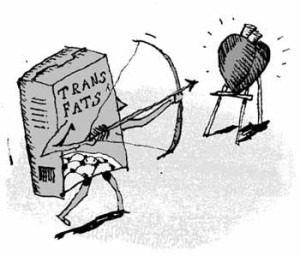
1. Artificial trans fats should never be consumed by humans
Trans fats are nauseating. The process of making them includes high pressure, heat, and hydrogen gas in with a metal catalyst. This method turns liquid vegetable oils into a thick, poisonous sludge that is solid at room temperature.
It makes me wonder how someone ever thought to package it up and sell it for human consumption. Studies have shown that they are incredibly dangerous and linked to a drastic increase in heart disease risk. They are found in everything from fried foods to coffee creamers so be sure to always read labels!

2. The media cannot be trusted for nutritional information
The mainstream media is partially to blame for all the nutrition confusion. Every few days there is a new study making headlines, often contradicting another study that came out just a few months earlier. These studies are often taken way out of context to improve ratings or readership.
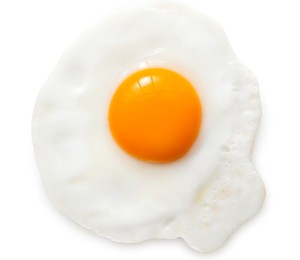
3. Eggs are one of the healthiest foods in the grocery store
Eggs were falsely persecuted because yolks are high in cholesterol. However, studies have shown that cholesterol from eggs doesn’t raise blood cholesterol in the majority of people. In addition, new studies that include hundreds of thousands of people show that eggs have no effect on heart disease.
The fact is that eggs are among the most nutritious foods you can consume. Almost all the nutrients are found in the yolk, so avoiding the yolk is one of the biggest mistakes in the history of nutrition.
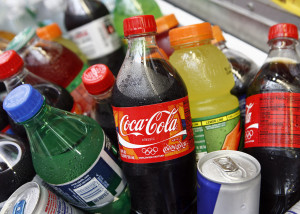
4. Drinks with added sugar are the worst part of the modern diet
Drinking sugar sweetened beverages is never a good idea. The problem is they don’t make you feel full and your brain doesn’t compensate for the calories by consuming less of other foods.
Sugary drinks are the most fattening of all junk foods. If you need to sweeten your beverages, then use these natural sweeteners.
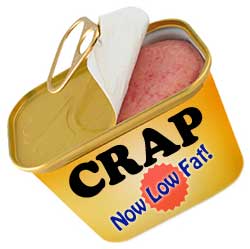
5. Low-fat does not mean healthy
The low-fat diet promoted by the mainstream nutrition guidelines is an absolute disaster. Numerous long-term studies have proven that it doesn’t work for either weight loss or disease prevention.
Even worse, it led to an excess of processed low-fat foods to be brought to the market. Because foods taste terrible without the fat, the food manufacturers decided to add tons of sugar to make them edible. Foods that are naturally low-fat (like fruits and vegetables) are great, but processed foods with “low-fat” on the label are usually loaded with unhealthy ingredients.
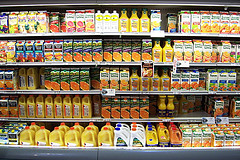
6. Fruit drinks are not the same as fruit
A lot of people think that fruit juices are healthy. It sounds legit because they come from fruit, right? Wrong! Fruit juices contain just as much sugar as sodas like Mountain Dew and often contain very little fruit (if any).
The drinks don’t contain any fiber making it way too easy to overindulge. One glass of orange juice contains the same amount of sugar as 4 whole oranges.
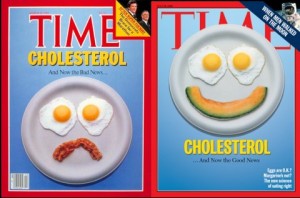
7. Cholesterol is not evil
What people usually call “cholesterol” isn’t really cholesterol. When people talk about the so-called “bad” and “good” cholesterol, they’re actually referring to the proteins that carry cholesterol around.
LDL stands for Low Density Lipoprotein and HDL stands for High Density Lipoprotein.
The truth is, cholesterol is not the enemy. The main determinant of heart disease risk is the type of lipoproteins that carry cholesterol around, not cholesterol itself.
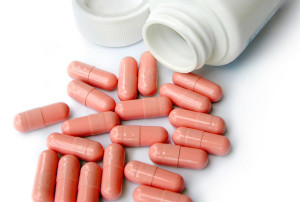
8. Fat burners are a scam
There are countless weight loss supplements available for sale and we are bombarded with advertisements on a daily basis for these products.
The issue is that they almost never do what they claim to do. They claim to deliver magical results, but fail when put to the test in actual studies. Even the ones that do work have an effect that is too small to really make a noticeable difference.
People who promote magic solutions like weight loss supplements are truly damaging our society, because this distracts people from the things that actually matter. The truth is that the only way to lose weight and keep it off, is to adopt a healthy lifestyle.
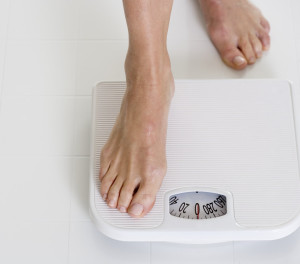
9. The scale can’t measure health
People focus way too much on just weight gain and loss. Being healthy goes way beyond that. A lot of obese people are metabolically healthy, while many normal weight people have the same metabolic problems associated with obesity.
Only focusing on body weight can encourage one to lose weight in an unhealthy fashion or wrongfully believe they’re free of health problems just because they’re of normal weight. It is possible to improve health without causing weight loss, and vice versa.
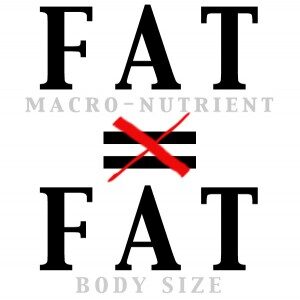
10. Fat doesn’t make you fat (neither do carbs)
Fat has been blamed for obesity, because fat contains more calories per gram than protein and carbs; however, this has been proven wrong time and time again.
Those who consume a diet high in fat and low in carbs actually end up eating fewer calories than people on a low-fat, high-carb diet. This has on the other hand led many to accuse carbs for obesity, but this is a mistake as well. Countless populations have had high-carb diets but remained healthy.
As with everything in nutrition, this depends on the context. By managing portions, restricting sugar, and focusing on natural “real” foods, you can eat carbohydrates without gaining fat. Here are 5 smart ways to eat fat.
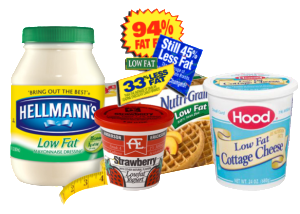
11. Health claims on food packaging cannot be trusted
Our society is more health conscious than ever and food manufacturers are taking advantage. They do this by adding misleading labels like “whole grain,” “light,” and “low fat” on their foods.
These labels are almost always used to trick people into thinking that they’re making the healthy choice for themselves (and their family). Here’s a good rule of thumb: if the packaging of a food has to tell you that it is healthy, then it probably isn’t.
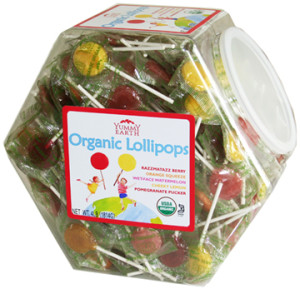
12. “Organic” or “Gluten-Free” does not equal healthy
Organic foods and going gluten-free are both really popular health trends, so naturally food manufacturers are there to leverage this with deceptive packaging.
The problem is just because something is organic or gluten-free doesn’t mean that it is healthy. For example, you can make all sorts of junk foods out of organic ingredients. Foods that are naturally gluten-free are fine, but gluten-free processed foods are often made with seriously harmful ingredients that are even worse than their gluten-containing counterparts.
Truthfully, organic sugar is still sugar and gluten-free junk food is still junk food. Common sense still applies. Shop along the outside of the grocery store buying fresh foods and when buying packaged foods, look for foods with the least number of ingredients. Here are some more ways we ruin healthy food.





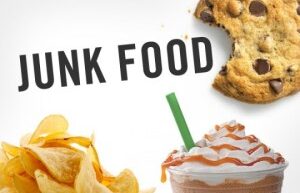
Add comment